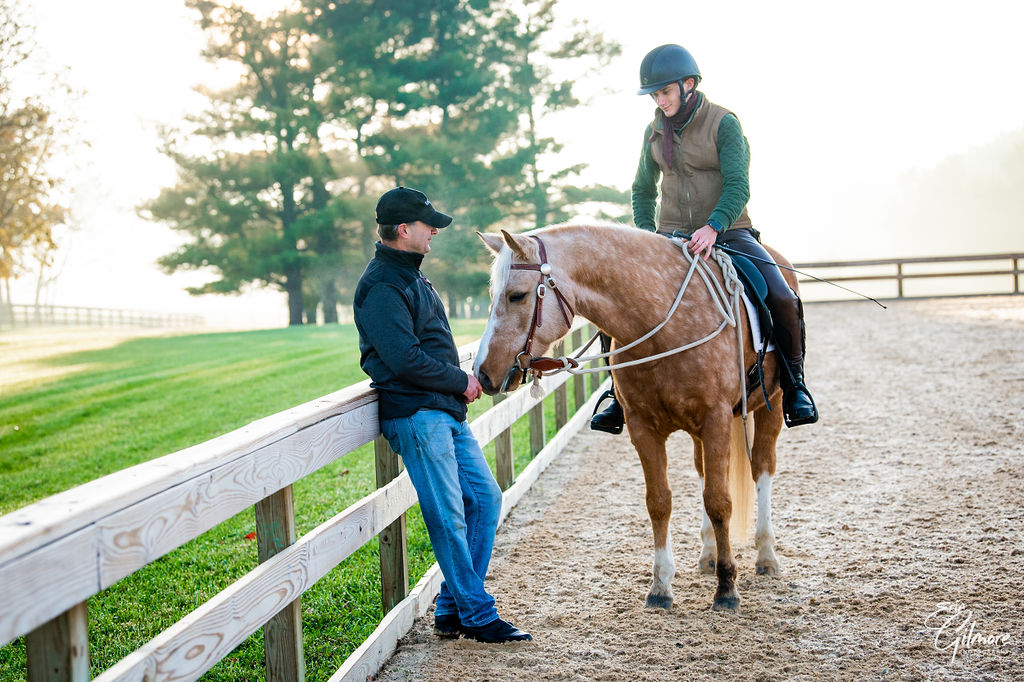[fusion_builder_container type=”flex” hundred_percent=”no” hundred_percent_height=”no” hundred_percent_height_scroll=”no” align_content=”stretch” flex_align_items=”flex-start” flex_justify_content=”flex-start” hundred_percent_height_center_content=”yes” equal_height_columns=”no” container_tag=”div” hide_on_mobile=”small-visibility,medium-visibility,large-visibility” status=”published” spacing_medium=”” spacing_small=”” padding_dimensions_medium=”” padding_dimensions_small=”” border_sizes=”” border_style=”solid” box_shadow=”no” box_shadow_blur=”0″ box_shadow_spread=”0″ gradient_start_color=”” gradient_end_color=”” gradient_start_position=”0″ gradient_end_position=”100″ gradient_type=”linear” radial_direction=”center center” linear_angle=”180″ background_position=”center center” background_repeat=”no-repeat” fade=”no” background_parallax=”none” enable_mobile=”no” parallax_speed=”0.3″ background_blend_mode=”none” video_aspect_ratio=”16:9″ video_loop=”yes” video_mute=”yes” render_logics=”” absolute=”off” absolute_devices=”small,medium,large” sticky=”off” sticky_devices=”small-visibility,medium-visibility,large-visibility” sticky_transition_offset=”0″ scroll_offset=”0″ animation_direction=”left” animation_speed=”0.3″ filter_hue=”0″ filter_saturation=”100″ filter_brightness=”100″ filter_contrast=”100″ filter_invert=”0″ filter_sepia=”0″ filter_opacity=”100″ filter_blur=”0″ filter_hue_hover=”0″ filter_saturation_hover=”100″ filter_brightness_hover=”100″ filter_contrast_hover=”100″ filter_invert_hover=”0″ filter_sepia_hover=”0″ filter_opacity_hover=”100″ filter_blur_hover=”0″][fusion_builder_row][fusion_builder_column type=”1_1″ layout=”1_2″ align_self=”stretch” content_layout=”column” align_content=”flex-start” content_wrap=”wrap” center_content=”no” target=”_self” hide_on_mobile=”small-visibility,medium-visibility,large-visibility” sticky_display=”normal,sticky” order_medium=”0″ order_small=”0″ margin_top=”22px” margin_bottom=”0px” hover_type=”none” border_style=”solid” box_shadow=”no” box_shadow_blur=”0″ box_shadow_spread=”0″ background_type=”single” gradient_start_position=”0″ gradient_end_position=”100″ gradient_type=”linear” radial_direction=”center center” linear_angle=”180″ background_position=”left top” background_repeat=”no-repeat” background_blend_mode=”none” animation_direction=”left” animation_speed=”0.3″ filter_type=”regular” filter_hue=”0″ filter_saturation=”100″ filter_brightness=”100″ filter_contrast=”100″ filter_invert=”0″ filter_sepia=”0″ filter_opacity=”100″ filter_blur=”0″ filter_hue_hover=”0″ filter_saturation_hover=”100″ filter_brightness_hover=”100″ filter_contrast_hover=”100″ filter_invert_hover=”0″ filter_sepia_hover=”0″ filter_opacity_hover=”100″ filter_blur_hover=”0″ last=”true” border_position=”all” first=”false” padding_left_small=”20px” padding_right_small=”20px” min_height=”” link=””][fusion_title title_type=”text” rotation_effect=”bounceIn” display_time=”1200″ highlight_effect=”circle” loop_animation=”off” highlight_width=”9″ highlight_top_margin=”0″ before_text=”” rotation_text=”” highlight_text=”” after_text=”” title_link=”off” link_url=”” link_target=”_self” hide_on_mobile=”small-visibility,medium-visibility,large-visibility” sticky_display=”normal,sticky” class=”” id=”” content_align_medium=”” content_align_small=”” content_align=”left” size=”2″ animated_font_size=”” fusion_font_family_title_font=”'Palatino Linotype', 'Book Antiqua', Palatino, serif” fusion_font_variant_title_font=”” font_size=”27px” line_height=”” letter_spacing=”” text_transform=”” text_color=”#003429″ hue=”” saturation=”” lightness=”” alpha=”” animated_text_color=”” text_shadow=”no” text_shadow_vertical=”” text_shadow_horizontal=”” text_shadow_blur=”0″ text_shadow_color=”” margin_top_medium=”” margin_right_medium=”” margin_bottom_medium=”” margin_left_medium=”” margin_top_small=”” margin_right_small=”” margin_bottom_small=”” margin_left_small=”” margin_top=”” margin_right=”” margin_bottom=”” margin_left=”” margin_top_mobile=”” margin_bottom_mobile=”” gradient_font=”no” gradient_start_color=”” gradient_end_color=”” gradient_start_position=”0″ gradient_end_position=”100″ gradient_type=”linear” radial_direction=”center center” linear_angle=”180″ highlight_color=”” style_type=”none” sep_color=”#834840″ link_color=”” link_hover_color=”” animation_type=”” animation_direction=”left” animation_speed=”0.3″ animation_offset=”” /][fusion_text columns=”” column_min_width=”” column_spacing=”” rule_style=”default” rule_size=”” rule_color=”” hue=”” saturation=”” lightness=”” alpha=”” content_alignment_medium=”” content_alignment_small=”” content_alignment=”” hide_on_mobile=”small-visibility,medium-visibility,large-visibility” sticky_display=”normal,sticky” class=”” id=”” margin_top=”” margin_right=”” margin_bottom=”” margin_left=”” fusion_font_family_text_font=”” fusion_font_variant_text_font=”” font_size=”” line_height=”” letter_spacing=”” text_transform=”none” text_color=”” animation_type=”” animation_direction=”left” animation_speed=”0.3″ animation_offset=””]
Have you every been in a lesson and found yourself distracted, down on yourself, anxious, or afraid? I think that all of have been there to one degree or another. What I would love for you to reflect on is the question, “In those moments, how available were you to taking in new information and learning?” There is a tipping point for each of us. As our feelings get stronger there is a moment where those feelings shut down our ability to think, as well as our curiosity, interest, and outward attention.
 This process is natural and is not a cause for concern if we have the understanding and tools to effectively deal with our negative thoughts and feelings, and bring our learning selves back on line. I have written at length in the past about personal strategies to regulate strong emotions. They include skills and practices like breath work, mindfulness, imagery, resourcing, reframing, and many more. However, today I don’t necessarily want to speak to the riders. Rather, I want to address, or rather support, the instructors and trainers.
This process is natural and is not a cause for concern if we have the understanding and tools to effectively deal with our negative thoughts and feelings, and bring our learning selves back on line. I have written at length in the past about personal strategies to regulate strong emotions. They include skills and practices like breath work, mindfulness, imagery, resourcing, reframing, and many more. However, today I don’t necessarily want to speak to the riders. Rather, I want to address, or rather support, the instructors and trainers.
It occurred to me decades ago that the vast majority of riding instructors never receive any formal training in the science and art of teaching. Instead, they struggle through, using trial and error. They get some support from colleagues, usually around the most difficult teaching situations. Yet, mostly it is sink or swim. Over the years, I have enjoyed providing support to instructors by talking through difficult teaching situations, helping them better understand the nature of their students, and providing them strategies designed to help their students learn.
Recently, I had the honor of presenting on this topic to the USEA Instructor Certification Program’s educational symposium. My talk was focused on opening a window or two that would guide these instructors to essential information, helping them elevate their teaching and their student’s experiences. One of those windows was on creating positive learning environments and a culture which promotes psychological safety.
A positive learning environment and psychological safety are essential. They are essential because without them many, if not most, of our students will be unavailable for learning. We are all born with an innate drive for safety and security, as well as a drive for curiosity, exploration, and play. When we feel threatened, our drive for safety and security wins out every time. The way it does this is by shutting down the parts of our brain that support our curiosity and are essential for learning.
There is long standing attitude in our sport where verbal abuse, yelling, and screaming masquerade as lessons in toughness. The ability to tolerate this aggression is seen somehow as a badge of honor. Some might argue that they learned to ride well in this culture. My argument would be that if they learned to ride well, they learned despite this culture rather than because of it.
As an instructor, if you want your students to succeed and get the most out of their lessons and other learning experiences with you, invest in your stable’s culture. Create an environment in which students are respected, valued, and connected to something larger than themselves. This investment will pay off in spades. Your students will be eternally grateful. As a student, we can help our teachers understand what we need to stay win the right side of that tipping point, keep our curiosity and learning brain online, and make sure that we are available to learn.
~ Paul
[/fusion_text][fusion_imageframe aspect_ratio=”custom” custom_aspect_ratio=”35″ aspect_ratio_position=”” lightbox=”no” linktarget=”_self” align_medium=”none” align_small=”none” align=”none” mask=”” custom_mask=”” mask_size=”” mask_custom_size=”” mask_position=”” mask_custom_position=”” mask_repeat=”” style_type=”” hover_type=”none” margin_medium=”” margin_small=”” caption_style=”off” caption_align_medium=”none” caption_align_small=”none” caption_align=”none” caption_title_tag=”2″ animation_direction=”left” animation_speed=”0.3″ hide_on_mobile=”small-visibility,medium-visibility,large-visibility” sticky_display=”normal,sticky” filter_hue=”0″ filter_saturation=”100″ filter_brightness=”100″ filter_contrast=”100″ filter_invert=”0″ filter_sepia=”0″ filter_opacity=”100″ filter_blur=”0″ filter_hue_hover=”0″ filter_saturation_hover=”100″ filter_brightness_hover=”100″ filter_contrast_hover=”100″ filter_invert_hover=”0″ filter_sepia_hover=”0″ filter_opacity_hover=”100″ filter_blur_hover=”0″ image_id=”1763|full”]https://ridingfar.com/wp-content/uploads/2022/01/RidingFar102821-2455.jpg[/fusion_imageframe][/fusion_builder_column][/fusion_builder_row][/fusion_builder_container]

LEAVE A COMMENT
Comments